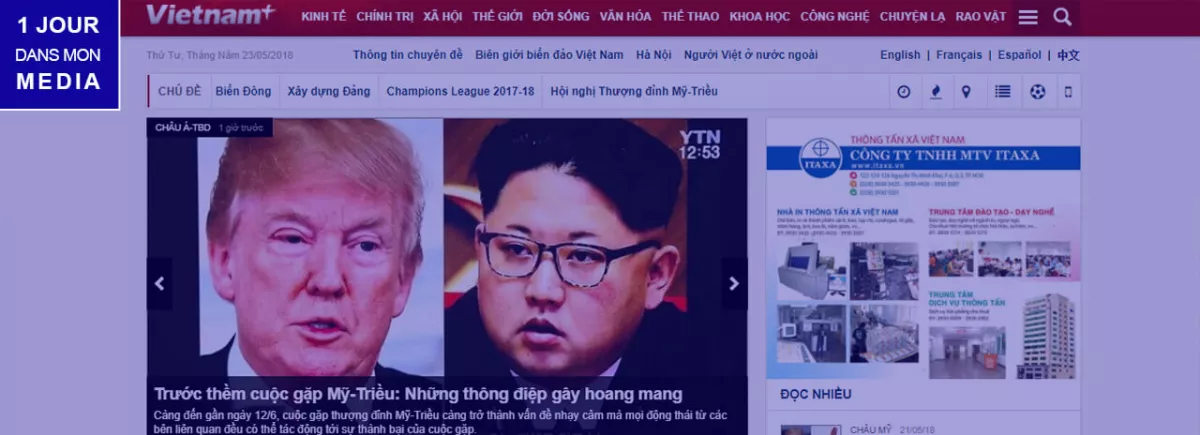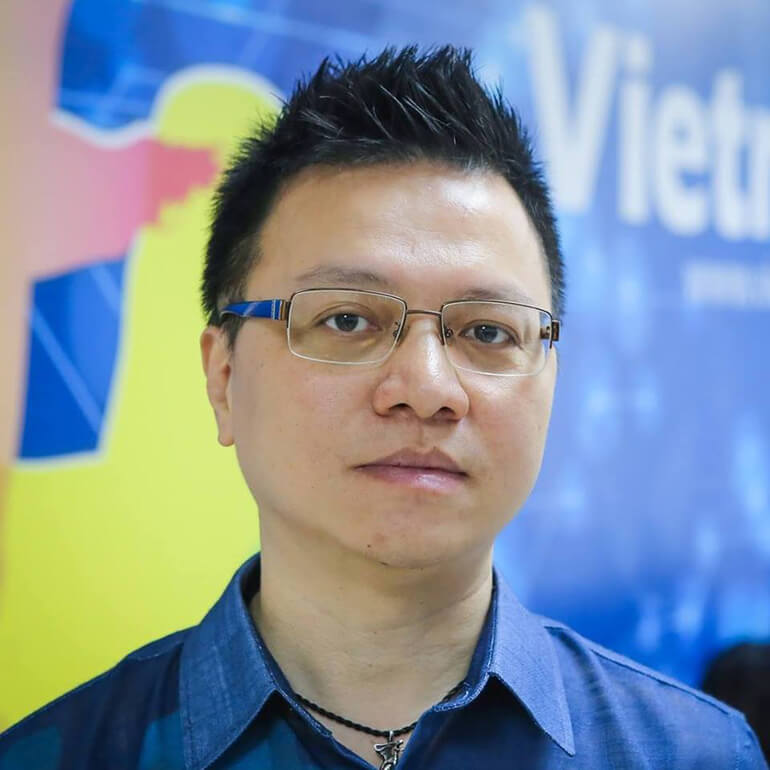
Vietnam Plus: the innovative media outlet
Related project
4M AsiaOne day in my media organisation is a series of weekly reports illustrating the daily lives of people who work in media organisations across Africa, the Arab world and Southeast Asia, supported by CFI.
This week, we have an interview with Le Quoc Minh, the founder of
VietnamPlus, created on 13 November 2008.
It is the official news website of the Vietnam News Agency (
VNA), the only news agency in Vietnam. With 1,300 journalists, a network of 30 local offices and around sixty offices overseas, the VNA is the largest media company in the country.
Le QuOc Minh began his career in journalism there as an editor.
A mainstream media outlet
Vietnamplus.vn is available in French, English, Spanish and Chinese.
Le Quoc Minh was its first Chief Editor until April 2018, when he was promoted to Vice-President of VNA.
VietnamPlus is an exclusively online news website because I believed digital media was the future.
"It's a website aimed at the general public and we cover all topics, from politics, the economy, society, culture, sport and science to technology and the environment, among others", he notes.
VietnamPlus's initial target audience were “serious", educated 30-year-olds living mostly in urban areas. Later, the outlet set up a number of innovative projects to attract a younger audience, including a mobile application in several languages created in 2010, generating around 500,000 downloads.
In 2011, the website put the emphasis on social journalism with its coverage of the tsunami in Japan.
"We also launched 360-degree photo/video in 2014, long-form stories in 2015 and data journalism in 2017. Our most popular innovation is RapNewsPlus, a twice-weekly news broadcast in rap form", the Vice-President enthuses.
First introduced in November 2013, this innovation has enabled VietnamPlus to be ranked among the “five most innovative editorial teams in the world despite their small size" and
to win the
WAN-IFRA creativity prize. The initiative was promoted by several international media organisations, including the BBC, The Guardian, Canal+ and NHK. However, the project came to an end in late 2016, after three years of activity: "We still sometimes make videos on certain topics. Our most recent newsflash in rap was about the protection of intellectual property", the young man explains.
Revenue streams other than advertising
VietnamPlus has over 50 employees and its headquarters are in Hanoi, the capital of Vietnam. Its journalists are particularly careful to cross-check information, and while they are encouraged to produce content as quickly as possible, what matters above all is controlling the veracity of the information.
The media outlet has Facebook pages for each language, although the Vietnamese version
We don't do “clickbait" stories, traffic can't be as significant as on other news websites.is the most active one:
"
The fanpage is a good way of communicating with the audience. It helps to increase traffic. However, fan pages are not as good as they used to be because Facebook often changes the algorithm", regrets Le Quoc Minh.
Since its launch, VietnamPlus has not really relied on advertising revenue.
Direct advertising revenue only accounts for 30% of turnover. The outlet is generating a profit by diversifying its activities: for example, VietnamPlus is the main content supplier for
MSN Vietnam, the Microsoft portal.
The news website has also teamed up with a Norwegian company to run a classified ads page called
Raovat and has created a website to introduce Japanese companies wanting to invest in Vietnam or conducting business in the country.
"
This initiative, run in collaboration with a Japanese media company, was launched in 2011 and lasted three years", notes Le Quoc.

Several projects on the horizon
According to the founder of the outlet, journalism is an occupation like any other and someone who leads a newsroom faces many challenges, as in other professions.
"
When I was in charge of editorial, my challenges involved ensuring we remained original to avoid losing part of our audience to social media websites, which are making the job of journalists more difficult. I've thought a lot about how to monetise the outlet without compromising the quality of the journalism. My last challenge was to invest in new media technologies".
In 2018, according to the Reporters Without Borders ranking, Vietnam
ranked 175th on the World Press Freedom Index. Despite this, Le Quoc Minh believes the situation has improved: "Journalists are more professional in how they go about their work and have got better at meeting the public's expectations by disseminating more useful and more interesting information. Now they have no hesitation in exposing scandals and corruption cases, and praise good deeds", he reveals.
In June 2018, VietnamPlus will run another trial of its paywall.
This service was launched in 2012 but had to be shut down a year later because of technical problems with online payment, which have now been resolved: "
Advertising revenue has decreased and we have to find a sustainable revenue stream to continue producing quality journalism", the journalist concludes.
Despite the widespread crisis of trust in the Vietnamese media, Le Quoc Minh believes there are signs of a resurgence of interest in traditional newspapers, which are seen as a safer option because they have existed for so long. The increase in fake news has not been good for the reputation of online media.
VietnamPlus is now taking an interest in artificial intelligence, mainly for machine translation of its content, in robot journalism and in voice-controlled devices.


